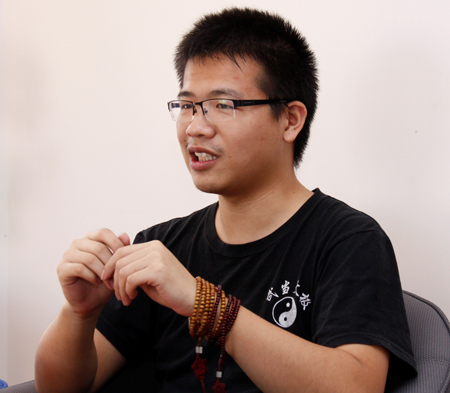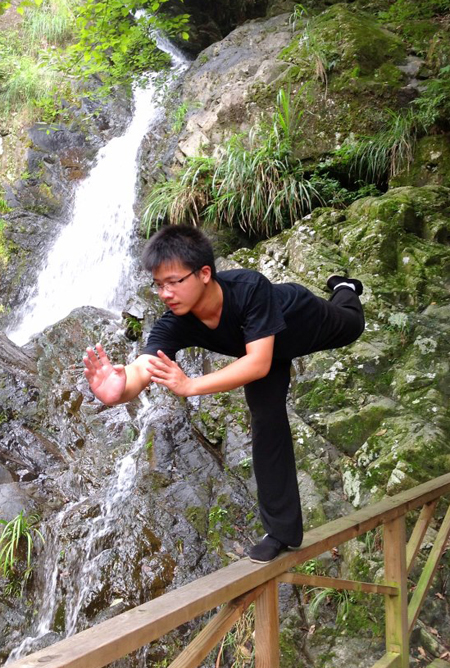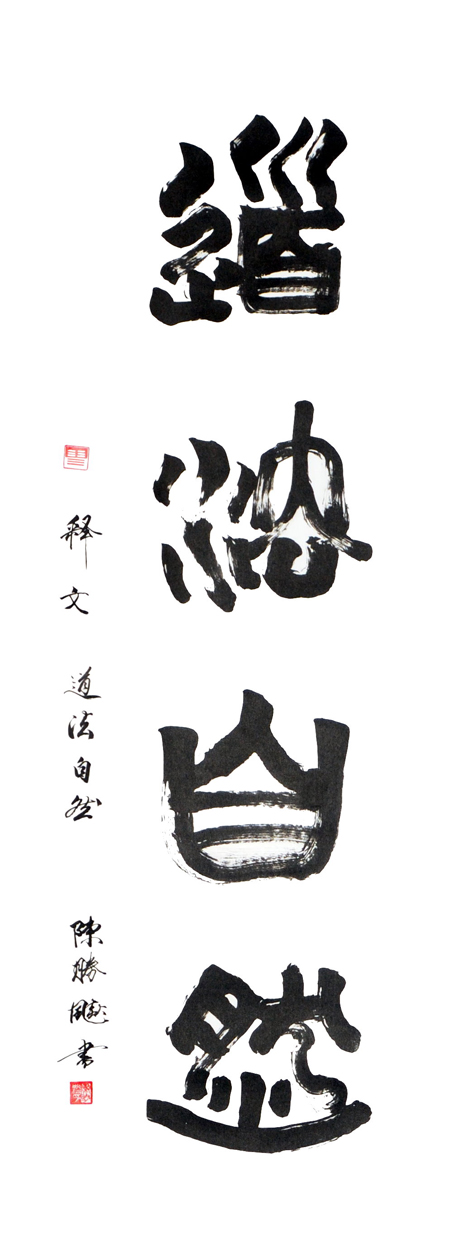If you ever see a young man in flowing white robes walking around our campus or practicing qi gong, or Taiji, or calligraphy in front of the tiny tortoise pond or under a blooming tree with a concentrated expression on his face, do not be alarmed and think that you have somehow time-travelled into the ancient times. This young man who is crazy about traditional Chinese martial arts and calligraphy is Chen Sheng Biao, a second-year undergraduate student from the Department of Chinese. He has opened calligraphy and martial arts classes at Pearl Jubilee College (PJC), and organised exhibitions for his calligraphy works. He has won prizes at numerous martial arts competitions. Among his friends, he is affectionately referred to as “our martial arts master”.
“Growing up, I had a boring life,” Chen opens the story about how he stumbled upon his interest in calligraphy with this unexpected comment. Chen is the only child in the family, and his parents believed in strict discipline. As a result, he spent most of his childhood time studying, knowing that any non-study-related hobby would be frowned upon by his parents. A chance encounter with a Chinese writing brush, however, made him fall in love with calligraphy, and perhaps because the hobby was considered study-related, it survived the parental ban, and became his only childhood playground. He would practice writing for hours, feigning deaf to his parents’ nagging protest that, “Less brushing, more essay writing,” and totally fascinated by how the repetition of a same stroke could achieve so many different effects.
His introduction to martial arts came after an unsuccessful “son exchange programme” proposed by a friend of his father’s. When he was six years old, his father’s friend, who was the master of the White Crane Martial Arts Faction, suggested to Chen’s father, who was the manager of a printing factory, that he teach Chen martial arts and Chen’s father teach his son printing techniques in return, to which Chen’s father emphatically declined for fear that his son might graduate from martial arts learning to become a street thug. Unable to resist the charm of martial arts, little Chen began to engage in a series of undercover martial arts training activities, which included extensive reading of related books and practicing, stubbornly ignoring the frequent voices of doubt, “What’s the point of practicing martial arts?”
Seriously, what’s the point—of practicing martial arts or calligraphy? Chen answered, “They make you breathe slowly. They help to quiet your mind. They let you enter a state where it’s easier to get in touch with your inner self and the core of this world. And these will do you enormous good, physically and emotionally, especially in this fast-paced world. In fact I honestly believe if the whole world could learn to breathe more slowly, there would be fewer conflicts.”
Chen immigrated to Macao at age 17. At 21 he was recommended for direct admission to the Department of Chinese at UM, which suited him perfectly, because studying a Chinese major has allowed him to know more about traditional Chinese culture. Asked about his plans for the future, Chen says he hopes to study and promote martial arts and traditional Chinese culture but he doesn’t want to become a modern martial arts master living a cloistered life. He is open to different possibilities: he wants to pursue further studies; he thinks he would like teaching; he is also interested in attending a police college and training to be a martial arts coach. He’s not in a hurry to decide though. Like he said, “Quiet your mind, and the answer you have been seeking might surface automatically.”



